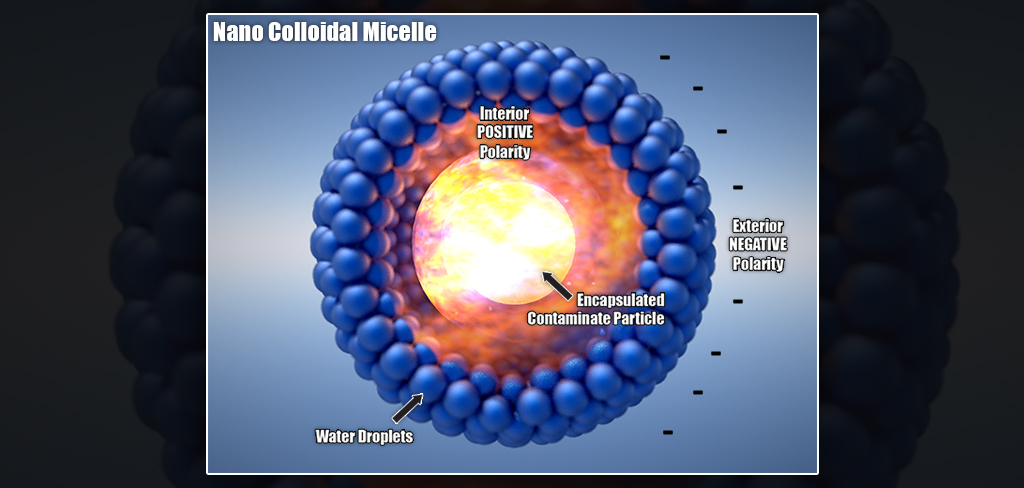Food grade ingredients, such as soy, corn, grain, potatoes and other forestry materials (plants & trees) are processed to form a particle called a micelle. Comprised of a collection of linear molecules of fatty esters and fatty acids clumped together in the shape of a sphere, the micelle's small particle size (one to four nanometers), combined with its extremely high surface area to volume ratio enable it to penetrate complex carbon molecules and emulsify organic matter. These linear molecules or micelle have a hydrophobic tail and a hydrophilic head and are activated when mixed with sufficient amounts of water so that each micelle is then completely surrounded by a thin layer of water molecules. The outer hydrophilic shell aggressively searches for and bonds with water molecules, making them hyper-mobile.

The colloidal micelles then works to break down long chain hydrocarbon bonds in fats, oils and grease (FOG), holding them in suspension when mixed with water. Individual micelles repel each other like opposing magnets while attracting solid particles and breaking down hydrocarbon bonds into smaller molecules and/or atoms.
Once solid particles have attached themselves to the colloidal micelle, the micelle holds them in suspension, preventing re-soiling from occurring and safely allowing FOG to be permanently dissolved in water. The wash off is biodegraded, becoming soil constituents such as nitrate, dissolved oxygen, carbon dioxide, biomass and water. Mixed together in a highly diluted water solution, colloids drastically reduce surface tension and work as a dispersing agent that carries other active ingredients more effectively than common surfactants.

“The PDVSA testing with the G-CLEAN well stimulation technologies yielded unequalled positive results at a number of dormant oil and gas well locations,” said Nelson Medina, PDVSA / INTEVEP New Technologies Director. “We have tested and investigated over 100 diverse products and found that the G-CLEAN well stimulation technologies performed most effectively and consistently by increasing and restoring productivity in a number of various types of wells, while significantly reducing the costs and environmental consequences of traditional methods. This increased production is very important for the achievement of our Oil Sowing Plan.”

Venezuela’s PDVSA /Oil Sowing Plan 2013-2019 is to develop the Full Economic and Technological Sovereignty in all activities of Oil and Gas, as well as related strategic sectors, in order to leverage Core Processes that make up the Economic and Technological components which projects process units of oil and gas subsidiaries, and is part of the development strategies of the petro-industrial poles generated in this Oil Sowing Plan.






